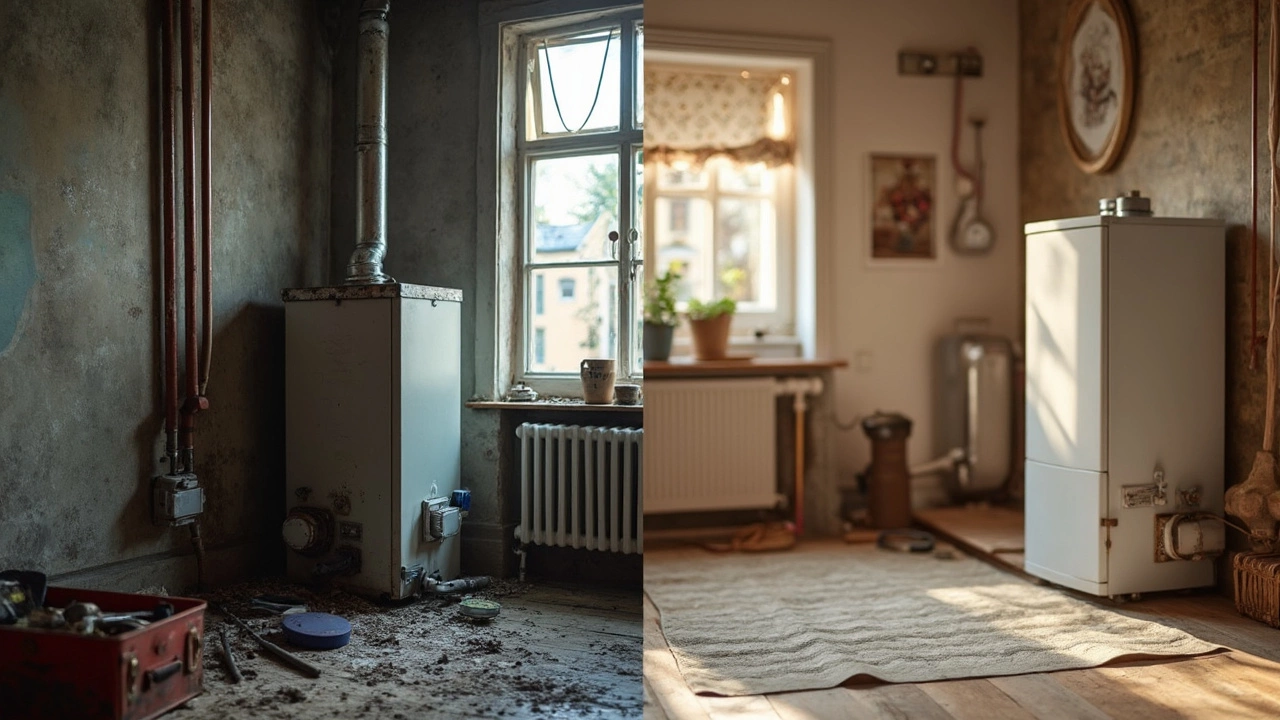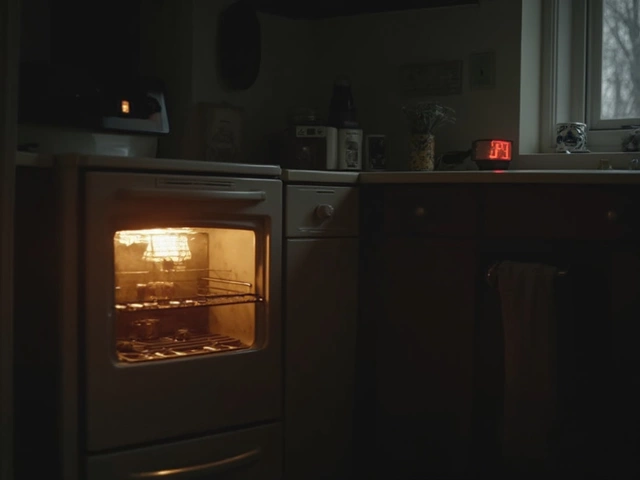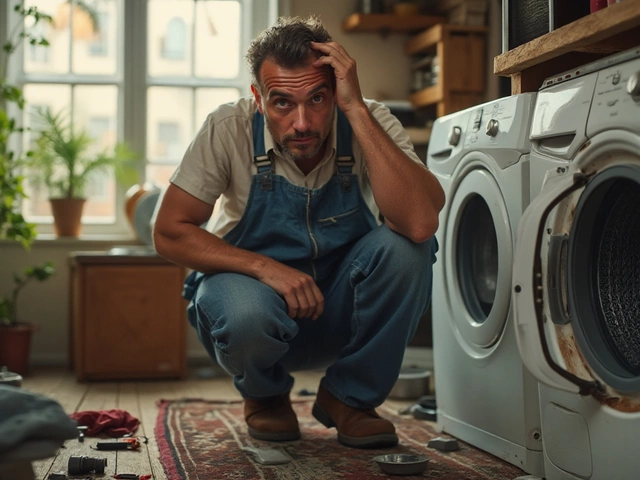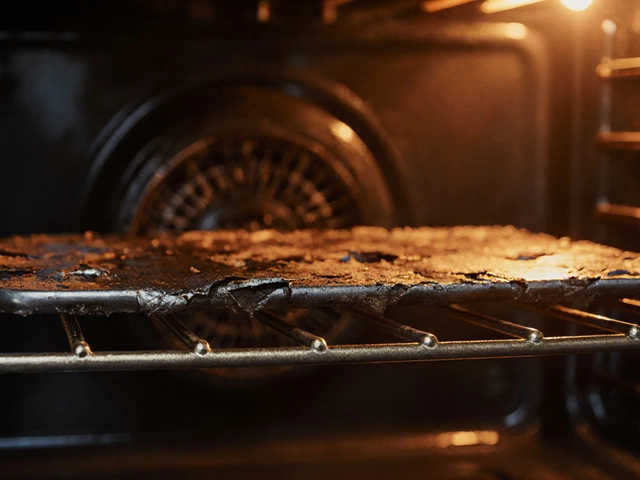Trying to figure out whether to repair or replace your boiler? This decision isn't just about dollars and cents; it's about warmth, comfort, and maybe even the sanity of your household. So, where do you start?
First things first: how old is your boiler? If it's been around since the days of dial-up internet, you might already have your answer. Most boilers have a shelf life of about 10 to 15 years. If yours is pushing those limits, the sensible route might lean towards replacement. An aging boiler not only risks frequent breakdowns but can also run less efficiently, spiking those energy bills.
- How Old Is Your Boiler?
- Signs It's Time for a Repair
- Should You Consider a Replacement?
- Tips for Making a Decision
How Old Is Your Boiler?
One of the first things you'll want to consider when deciding between boiler repair or a boiler replacement is age. Boilers are like that reliable old car you’ve been driving for years. While it might still get you from A to B, there's a point when it stops being worth the endless repairs.
Generally, boilers have a lifespan of 10 to 15 years. If your boiler is well within this window, frequent repairs could suggest it's on its last legs. Think of it like your favorite pair of sneakers—eventually, all those patches won't hold it together.
Every year a boiler ages, its efficiency can drop by a bit. That means more fuel to heat your home, which means higher bills. It's like living with a roommate who keeps turning up the thermostat and then forgetting to pay their share.
Let's check out a quick visual aid:
| Boiler Age | Efficiency Loss | Expected Issues |
|---|---|---|
| 0-5 years | Minimal | Minor tune-ups |
| 5-10 years | Noticeable | Part replacements |
| 10-15 years | Significant | Frequent repairs |
| 15+ years | Severe | Consider replacing |
So, if your boiler is creeping up there in age and your repair bills are starting to read like an itemized grocery receipt, it's worth considering whether to patch it up or make the leap to something new. Replacing an ancient boiler can save you money in the long run by boosting efficiency and cutting down on repair costs.
Signs It's Time for a Repair
So, when should you think about dialing up a professional for a boiler repair? It’s all about knowing what to watch for. Let's go over some telltale signs your boiler might be crying out for help.
First up, weird noises. If your boiler sounds like it’s hosting a party with clanking, banging, or whistling, that's your cue. These noises can mean anything from a simple fix to more complex issues like a pump failure.
Another red flag is inconsistent heating. Do some rooms in your house feel like they're in the tropics while others are stuck in the Arctic? Uneven heating can be a sign that your boiler isn't circulating hot water properly, often due to a failing component.
Keep an eye on your energy bills too. A sudden spike might mean your boiler is working overtime to keep up. This inefficiency not only drains your wallet but could also indicate a need for immediate repairs.
Leaking water is never a good sign, either. Even a small puddle can suggest issues like corrosion or a broken valve. Ignoring leaks can lead to bigger problems down the line, so don’t brush this one off.
- Weird Noises: Clanking, banging, or whistling? Get that checked out.
- Uneven Heating: Hot and cold spots in different rooms.
- Skyrocketing Bills: A noticeable jump in energy costs.
- Water Leaks: Small puddles now could mean bigger issues later.
If any of these signs sound familiar, don't wait. Prompt boiler repair can save you from a cold home and a chilly surprise on your next energy bill.
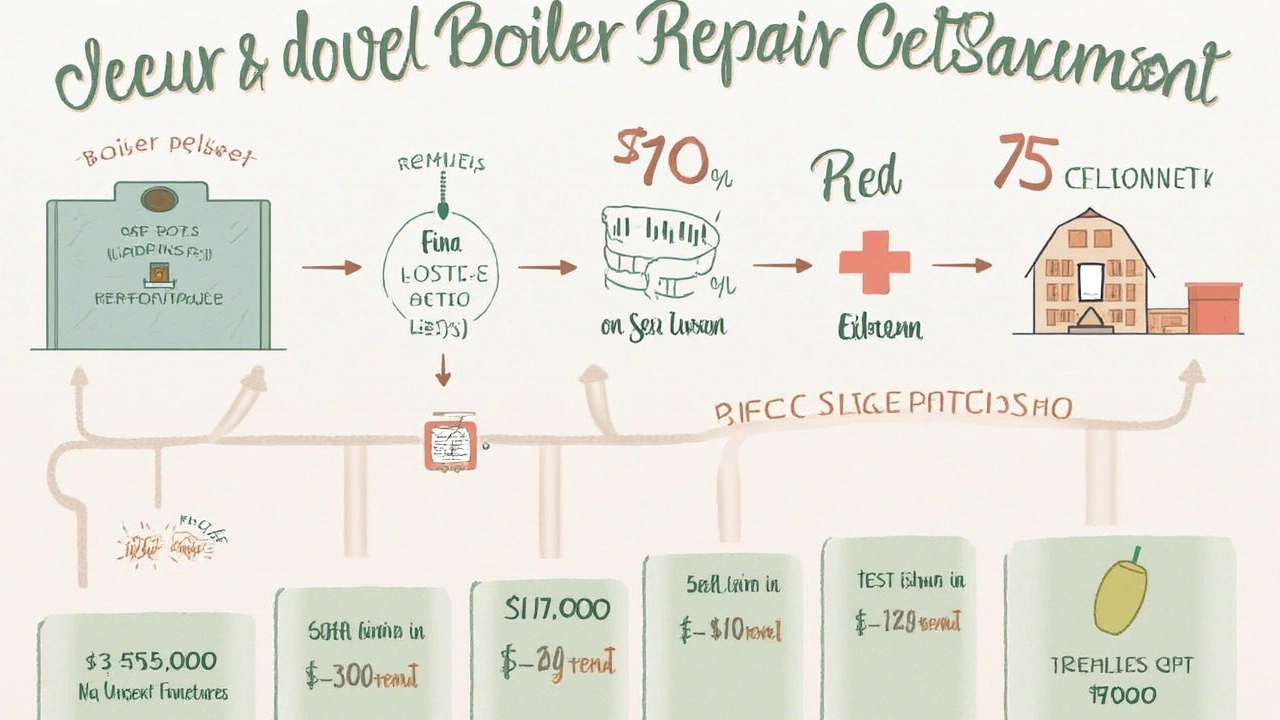
Should You Consider a Replacement?
Thinking about whether it's time to say goodbye to your old boiler? There are a few clear signs that might nudge you towards a replacement rather than sticking with repairs. To get started, consider how often you're ringing up the repairman. If it feels like you're on a first-name basis with them, your boiler might be telling you it's time for a break—or better yet, a retirement.
Another point to ponder is energy efficiency. Older boilers tend to gulp energy, driving up those utility bills. Compare it to a newer model, which can often boast up to 30% better efficiency. That's like dropping a few bucks back into your pocket each month! Plus, a more efficient system runs smoother, which means a toasty home without the hefty price tag.
Looking at repairs can paint a clear picture, too. If you're facing a repair that costs half of what a new boiler would, it's usually the smarter play to just go new. You'll avoid the patchwork problems of the old system and benefit from the latest tech, which often includes better safety features and longer warranties.
| Factor | Old Boiler | New Boiler |
|---|---|---|
| Energy Efficiency | 70% | Up to 95% |
| Typical Repair Cost | $500–$1,000 | N/A |
| Replacement Cost | N/A | $3,000–$5,000 |
Now, beyond these facts, think about your home's overall value. A newer boiler can spruce up your property appeal, especially if you're eyeing a sale. No buyer wants to inherit someone else's problem. So, if you're on the fence, jot down the pros and cons, and maybe chat with a trusted repair technician to get a feel for your specific situation. Their insight can be invaluable, giving you peace of mind about your decision.
Tips for Making a Decision
So, you're at a crossroads, trying to figure out if you should repair or replace your boiler. It's not just about keeping warm—it's about making a smart investment in your home. Here are some actionable tips to help you decide.
Boiler repair vs. replacement decisions start with cost assessments. If you're facing a hefty repair bill, typically over 50% of the cost of a new boiler, it's often more economical to replace. Remember that new boilers come with warranties, reducing the worry of future repairs for a few years.
Think about energy efficiency. New boilers can be up to 95% efficient compared to older ones that might only hit about 70%. This jump can mean big savings on your annual heating bills—sometimes up to 30%. Short-term pain for long-term gain, right?
Consider how often your boiler repair requirements are cropping up. If it seems like your boiler's in rehab more than your car, that's a red flag. Consistent problems mean it might be time to cut your losses.
Lastly, factor in your home's future. If you plan to sell soon, a newer boiler can be a selling point. On the flip side, if you're settled in for the long haul, investing in a reliable new system might be in your best interest.
- Assess repair costs vs. replacement costs.
- Evaluate energy efficiency gains.
- Note the frequency of repair needs.
- Consider future plans with your home.
To help you crunch numbers, here's a quick comparison of average costs:
| Scenario | Average Cost ($) |
|---|---|
| Single repair job | 300 - 500 |
| New boiler installation | 3,000 - 5,000 |
Armed with these tips, you're better positioned to make a decision that keeps your home warm and your finances in check.
